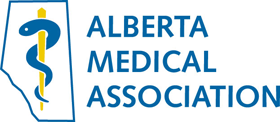Specialty Care Alliance (SCA)
The Specialty Care Alliance provides a forum for the unified voice of Specialty Care physicians in the province. Specialty care representatives and other key stakeholders work together to advance common interests and shared goals, focusing on system stewardship and various issues and opportunities within Specialty Care.
Purpose
The purpose is to provide a mechanism for the AMA and its specialty sections to engage as a group on various topics including integration of care, income equity, quality patient care, access to services, system innovation, physician supply and other activities of common interest.
Principles
- Enhance quality and value of health care provided to Albertans.
- Improve specialist integration with primary care partners.
- Improve access to specialist care for all Albertans.
- Enhance the well-being of specialist physicians.
- Collaborate in quality and health system improvement.
- Advocate for innovation in health systems and models of care.
Role of the SCA
Read the SCA Terms of Reference
Connect Care and the specialist physician
The SCA, in partnership with ThinkHQ Public Affairs, conducted a survey to research and address Connect Care concerns expressed by specialist physicians to the AMA. The study was designed to understand the extent to which the Connect Care implementation has affected specialist physicians in their provision of care in a variety of practice contexts, both positive and negative, and then to use the data to advocate for systemic improvements with AHS/Alberta Health.
The data is segregated in multiple ways:
- By zone of practice: Calgary (YYC), Edmonton (YEG) and other zones.
- Location of practice: AHS only versus mixed context providers (AHS and community offices).
- Time using Connect Care: <6 months, 6-12 months, and >12 months.
- Years of practice.
The SCA survey data are robust, with responses from 737 physicians across 30 specialties, and a margin of error of +/- 3.4 per cent. Across the data set, there was a 42 per cent negative impression of how Connect Care impacts physician efficiency to deliver care, and a 60 per cent negative impression on the impact Connect Care has on administrative time associated with clinical care. This means that a much larger segment of the population experienced a negative impact on efficiency and administrative time than those who experienced a positive impact.
We have shared the results with AHS and have agreed upon a plan to address these concerns which is summarised in the joint communications letter.
A town hall on this issue is being organized jointly by SCA and AHS. Details are pending and will be publicized separately.
For questions regarding the survey or updates related to our ongoing work with AHS regarding Connect Care, email us at specialtycarealliance@albertadoctors.org.
Community Information Integration (CII) and Central Patient Attachment Registry (CPAR)
SCA has believed in the value CII/CPAR brings to physicians and patients since its inception.
Community Information Integration (CII) allows physicians to send their consult reports to Alberta Netcare directly from their community EMR.
Central Patient Attachment Registry (CPAR) enable pediatricians and other primary providers to identify the patients they care for and receive eNotifications when their patients are seen in the emergency department or have a hospital admission.
Learn more about CII/CPAR and enrol today!
Transitions of care
The aim of Health System Integration is for Albertans to experience seamless, continuous, high quality care as they transition through the Health Neighbourhood.
Consultation Resources
High quality transitions, as part of the continuum of care, lead to quality, safe care for patients. Improving the referral process through improved information and management continuity can lead to more effective, efficient care in which the primary care physician is better able to care for his or her patients.
The SCA developed evidence-based principles to guide specialist care in the referral/consultation process:
- Care is patient-centered. Patient-centered care is a guiding principle at the center of all health care delivery. All service delivery should account for patient experience, safety and preferences. Caregivers and/or family members are included in patient-centered practice.
- Standardized processes are identified and implemented to optimize workflow and information flow. Consistent processes reduce errors and are foundational to information and management continuity.
- Primary and Specialty care physician and teams take a partnership, collaborative approach to avoid gaps in care. Relationship building between primary and specialty care promote shared accountability with role and responsibility clarity at all points in care transitions.
- Optimizing use of a multi-disciplinary team promotes communication and coordination. Use of a multi-disciplinary team removes workload burden from physicians and ensures team engagement for smooth processes.
- Engagement in quality improvement and evaluation ensures high-quality, reliable processes. Engagement in regular check-ins or process reviews ensures that the referral system is working effectively and efficiently.
- System leadership is required to model commitment to improving the referral process. Both clinical and non-clinical champions of this work are required to be leaders in process change.
- An IT infrastructure is a necessary, but not solely sufficient, enabler for optimized referral processes. The most common enabler of information transfer is a multi-access electronic system that allows for safe and effective sharing of patient information.
The following resources are available to specialist physicians to support quality transitions in care:
Members
|
Dr. Bertus Eksteen, Chair Dr. Andrei Manolescu, Deputy Chair Dr. Shelley Duggan |
Dr. Rahim Samji Dr. Clint Torok-Both Dr. Michel Sauve Dr. Manrit Takhar |
Dr. Todd Chaba Dr. Earl Campbell Dr. Joseph Bergman Dr. Sam Wong |
Specialty Care Forum
Next Meeting: Thursday, September 19, 2024
Contact us
- Michelle Hawgood, Administrative Assistant
Section Services, 780.733.3625 - specialtycarealliance@albertadoctors.org
